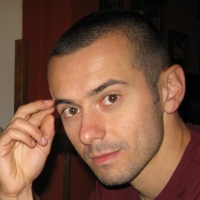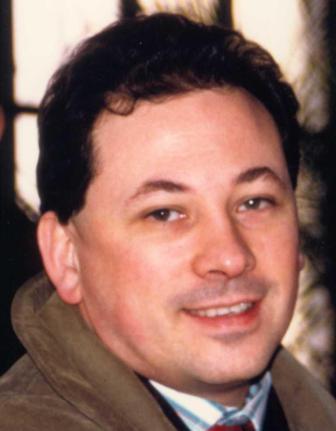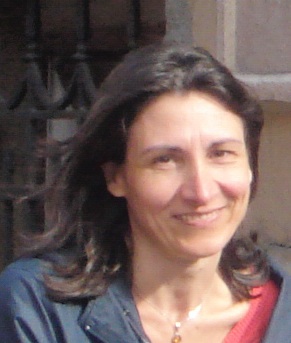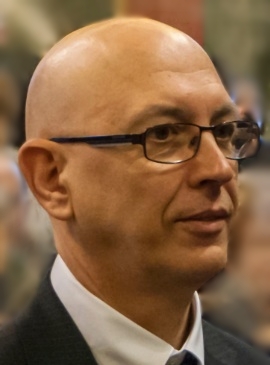Studying at the University of Verona
Here you can find information on the organisational aspects of the Programme, lecture timetables, learning activities and useful contact details for your time at the University, from enrolment to graduation.
Academic calendar
The academic calendar shows the deadlines and scheduled events that are relevant to students, teaching and technical-administrative staff of the University. Public holidays and University closures are also indicated. The academic year normally begins on 1 October each year and ends on 30 September of the following year.
Course calendar
The Academic Calendar sets out the degree programme lecture and exam timetables, as well as the relevant university closure dates..
| Period | From | To |
|---|---|---|
| I semestre | Oct 3, 2011 | Jan 31, 2012 |
| II semestre | Mar 1, 2012 | Jun 15, 2012 |
| Session | From | To |
|---|---|---|
| Sessione straordinaria | Feb 1, 2012 | Feb 29, 2012 |
| Sessione estiva | Jun 18, 2012 | Jul 31, 2012 |
| Sessione autunnale | Sep 3, 2012 | Sep 28, 2012 |
| Session | From | To |
|---|---|---|
| Sessione autunnale | Oct 19, 2011 | Oct 19, 2011 |
| Sessione straordinaria | Dec 13, 2011 | Dec 13, 2011 |
| Sessione invernale | Mar 21, 2012 | Mar 21, 2012 |
| Sessione estiva | Jul 16, 2012 | Jul 16, 2012 |
| Period | From | To |
|---|---|---|
| Festa di Ognissanti | Nov 1, 2011 | Nov 1, 2011 |
| Festa dell'Immacolata Concezione | Dec 8, 2011 | Dec 8, 2011 |
| Vacanze Natalizie | Dec 22, 2011 | Jan 6, 2012 |
| Vacanze Pasquali | Apr 5, 2012 | Apr 10, 2012 |
| Festa della Liberazione | Apr 25, 2012 | Apr 25, 2012 |
| Festa del Lavoro | May 1, 2012 | May 1, 2012 |
| Festa del Patrono di Verona S. Zeno | May 21, 2012 | May 21, 2012 |
| Festa della Repubblica | Jun 2, 2012 | Jun 2, 2012 |
| Vacanze estive | Aug 8, 2012 | Aug 15, 2012 |
Exam calendar
Exam dates and rounds are managed by the relevant Science and Engineering Teaching and Student Services Unit.
To view all the exam sessions available, please use the Exam dashboard on ESSE3.
If you forgot your login details or have problems logging in, please contact the relevant IT HelpDesk, or check the login details recovery web page.
Should you have any doubts or questions, please check the Enrollment FAQs
Academic staff
Bertelle Roberto
 federica.briata@univr.it
federica.briata@univr.it
Guarnieri Valerio
 valerio.guarnieri@univr.it
valerio.guarnieri@univr.it
 +39 045 802 7085
+39 045 802 7085
 massimo.guerriero@univr.it
massimo.guerriero@univr.it

Residori Stefania
 stefania.residori@univr.it
stefania.residori@univr.it

Volpe Marco
 marco.volpe@univr.it
marco.volpe@univr.it
 +39 045 802 7814
+39 045 802 7814
Study Plan
The Study Plan includes all modules, teaching and learning activities that each student will need to undertake during their time at the University.
Please select your Study Plan based on your enrollment year.
1° Year
| Modules | Credits | TAF | SSD |
|---|
2° Year activated in the A.Y. 2012/2013
| Modules | Credits | TAF | SSD |
|---|
3° Year activated in the A.Y. 2013/2014
| Modules | Credits | TAF | SSD |
|---|
Un insegnamento a scelta tra i seguenti:| Modules | Credits | TAF | SSD |
|---|
| Modules | Credits | TAF | SSD |
|---|
| Modules | Credits | TAF | SSD |
|---|
Un insegnamento a scelta tra i seguenti:Legend | Type of training activity (TTA)
TAF (Type of Educational Activity) All courses and activities are classified into different types of educational activities, indicated by a letter.
Languages and compilers - LINGUAGGI (2013/2014)
Teaching code
4S02726
Teacher
Credits
6
Language
Italian
Scientific Disciplinary Sector (SSD)
INF/01 - INFORMATICS
Period
I semestre dal Oct 1, 2013 al Jan 31, 2014.
To show the organization of the course that includes this module, follow this link: Course organization
Learning outcomes
The course introduces the basic concepts of programming languages, such as functions, types, memory management, and control. The aim is to give a thorough understanding of the problems encountered in the design of programming languages. With this knowledge, students will be able to understand the advantages and disadvantages in using certain kinds of programming languages and to choose the most appropriate one for a given application.
Program
Virtual machines: interpreters and compilers. Syntactical descriptions of programming languages: context free grammars. Structured operational semantics.
Memory management: scoping rules, functions, procedures, parameter passing, stack of activation records, heap.
Control: structuring of statements, abstraction, exceptions.
Data and types: data types, base types, structured types, type systems, type inference and polymorphism.
Examples of programming paradigms.
Examination Methods
Written exam with optional oral exam (mandatory for evaluations greater than 26/30).
Type D and Type F activities
Modules not yet included
Career prospects
Module/Programme news
News for students
There you will find information, resources and services useful during your time at the University (Student’s exam record, your study plan on ESSE3, Distance Learning courses, university email account, office forms, administrative procedures, etc.). You can log into MyUnivr with your GIA login details: only in this way will you be able to receive notification of all the notices from your teachers and your secretariat via email and soon also via the Univr app.
Graduation
List of theses and work experience proposals
| theses proposals | Research area |
|---|---|
| Analisi e percezione dei segnali biometrici per l'interazione con robot | AI, Robotics & Automatic Control - AI, Robotics & Automatic Control |
| Integrazione del simulatore del robot Nao con Oculus Rift | AI, Robotics & Automatic Control - AI, Robotics & Automatic Control |
| Domain Adaptation | Computer Science and Informatics: Informatics and information systems, computer science, scientific computing, intelligent systems - Computer graphics, computer vision, multi media, computer games |
| Domain Adaptation | Computer Science and Informatics: Informatics and information systems, computer science, scientific computing, intelligent systems - Machine learning, statistical data processing and applications using signal processing (e.g. speech, image, video) |
| BS or MS theses in automated reasoning | Computing Methodologies - ARTIFICIAL INTELLIGENCE |
| Domain Adaptation | Computing Methodologies - IMAGE PROCESSING AND COMPUTER VISION |
| Domain Adaptation | Computing methodologies - Machine learning |
| Dati geografici | Information Systems - INFORMATION SYSTEMS APPLICATIONS |
| Analisi e percezione dei segnali biometrici per l'interazione con robot | Robotics - Robotics |
| Integrazione del simulatore del robot Nao con Oculus Rift | Robotics - Robotics |
| BS or MS theses in automated reasoning | Theory of computation - Logic |
| BS or MS theses in automated reasoning | Theory of computation - Semantics and reasoning |
| Proposte di tesi/collaborazione/stage in Intelligenza Artificiale Applicata | Various topics |
| Proposte di Tesi/Stage/Progetto nell'ambito dell'analisi dei dati | Various topics |
Attendance
As stated in the Teaching Regulations for the A.Y. 2022/2023, attendance at the course of study is not mandatory.


















